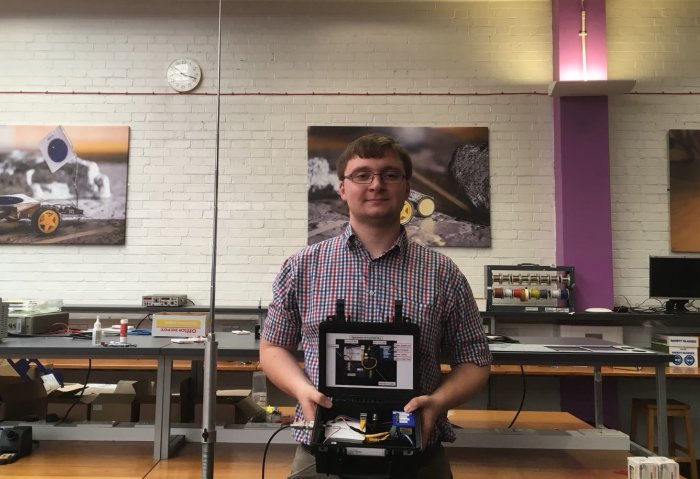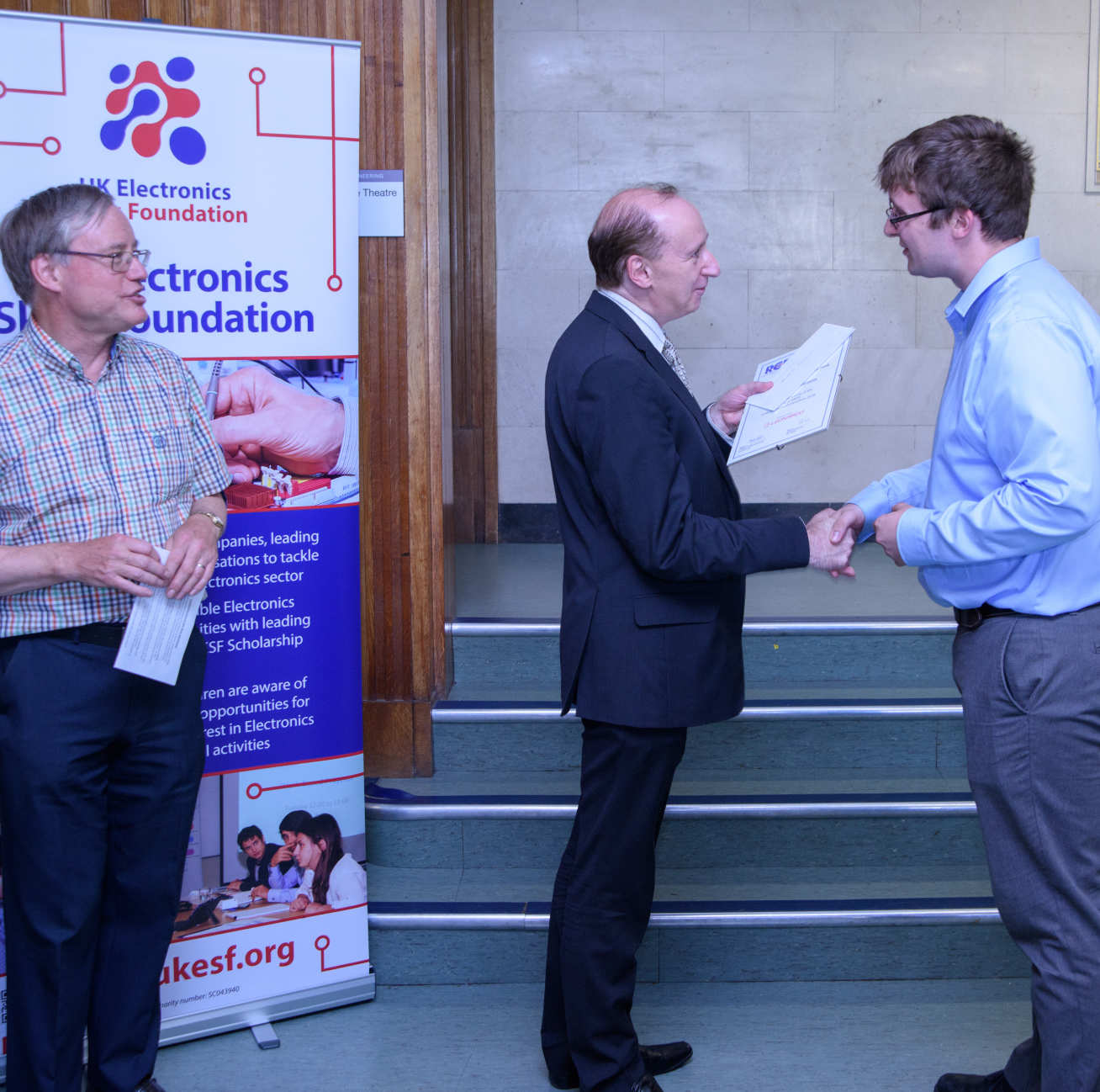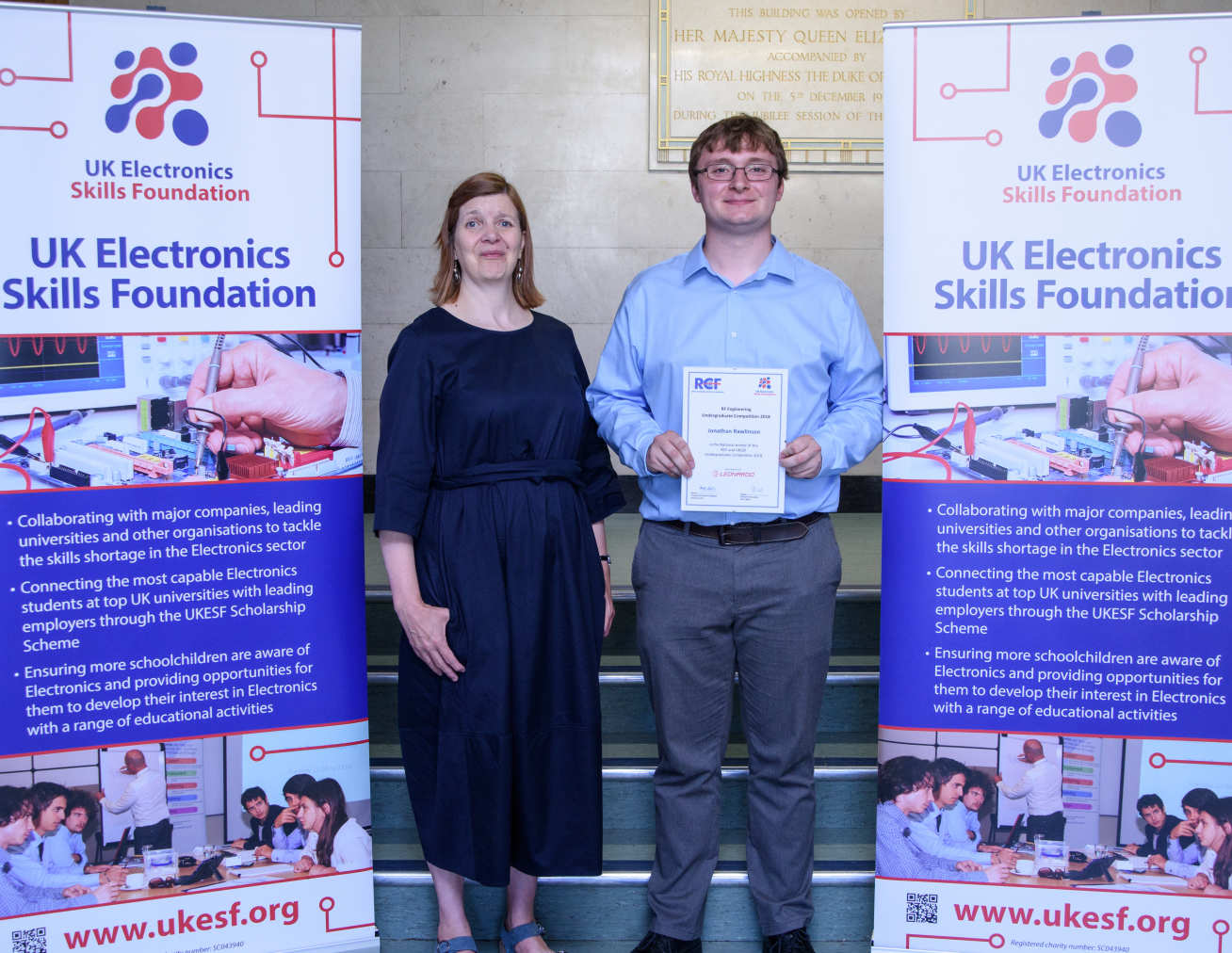WELL RECEIVED - Radio Frequency undergraduate project wins top prize.
by Emma Rainbow

Jonathan Rawlinson's final year project has been selected as the top project in the UK by the UKESF Radio Frequency Competition.
Update! Jon has won first prize!
Jonathan is a final year MEng Electrical and Electronic Engineering student, and his project is titled 'Radio Frequency Signal Classification Utilising Neural Networks: SignalDoctor'.
The Radio Frequency Competition is an annual competition set up by the UK Electronics Skills Foundation (UKESF) and the Radio Communications Foundation (RCF) in order to address the decline in the numbers of young people taking an interest in radio communications.
The Competition is open to undergraduates completing their major individual project with a focus on RF engineering and communications. Universities submit three entries to a national judging panel, who then decide on the top three projects.
The overall winner will be announced on 25 July at a ceremony at the University of Bristol, and they will receive £1,000, and the two runners-up receive £500 each.
Once Jonathan graduates he will be going to work for Surrey Satellite Technology (SSTL) where he will be involved in building radios and antennas for satellites. We wish Jonathan the best of luck with the Competition and his future career.
Jonathan gave us an abstract of his project:
Future cognitive radio systems will be operating in very signal dense environments, with numerous generations of radio systems in operation utilising different protocols all in the same frequency bands. The aim of this project is to design and build a radio system that is capable of classifying different radio signals using convolutional neural networks and novel feature extraction methods. It is proposed that this technology can be used to build more reliable and more agile Dynamic Spectrum Access (DSA) systems. Overall, a robust classification system for signals in the shortwave radio bands has been designed and constructed using a HackRF Software Defined Radio (SDR) as the data source. The proposed future work options are also presented along with a novel application of this technology (meteor scatter detection).


Article text (excluding photos or graphics) © Imperial College London.
Photos and graphics subject to third party copyright used with permission or © Imperial College London.
Reporter
Emma Rainbow
Department of Electrical and Electronic Engineering